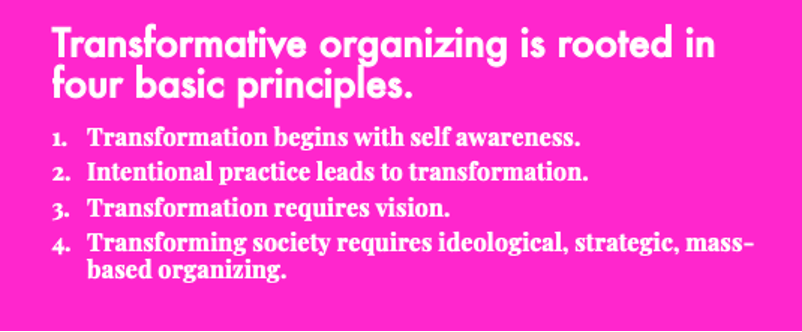Greetings! We are Dr. Albertina (Aly) Lopez (she/her), a senior associate with the Center for Evaluation Innovation, and Dr. Florence Etta (she/her), principal consultant with GRAIDE International Consultants Lagos, and the Africa Gender and Development Evaluators Network. This summer, we witnessed a boiling point in the US. We saw, at a national level, the horrors that result from systems founded on patriarchy and white supremacy. The AEA board responded by issuing a statement denouncing “all racist behaviors, acts, and communications” and stated that “actions must follow.” We wholeheartedly agree. We know that this action needs to be about our practice, the self, and our relationships.
Dr. Vidhya Shanker’s research and our AEA board’s apt description of the “racism and misogyny” in our listserv, EVALTALK, shows us how systemic oppression is not something that is “out there” in the world, but exists within our AEA. We are hopeful about the work that colleagues are doing, like in the feminist issues in evaluation and indigenous peoples in evaluation TIGs, that are pushing us and grappling with how we can mainstream evaluation as a tool for justice and use our practice for social transformation.
Rad Resource: Transformative Organizing can help us join these and other ongoing efforts. It can activate, energize, and empower us because it helps us focus on the personal and relational work with a system of oppression lens.

Hot Tip: Transformation begins with self awareness. Self awareness is the tipping point for individual transformation. What habits do you have that limit your effectiveness? How are your actions impacting others and your own physical, emotional, and intellectual self? The goal here is not to conform to white supremacist notions of perfection, but to “understand how we are impacting ourselves mentally, emotionally, physically, and relationally.” Albertina, for example, has observed herself get emotionally heated in situations that she perceives as unjust. So, she is working on regulating herself so she can be a more effective communicator and help to shape work that has potential for social transformation. Florence spends an unnecessarily long time on tiny details of work as a coping strategy for institutional oppression. This injures working relationships. Being aware of this characteristic and the reason for it, she can let things be as normal human imperfections thereby shaping a more equitable dynamic in her working relationships.
Hot Tip: Intentional practice leads to transformation. What are your current practices about how you engage with self or others or do evaluation? How do you want to be and act? We can follow the lead of those who are working to dismantle oppressive systems and practices such as CREA, EEI, AGDEN, MN IBPOC in Eval Community of Praxis, and Radical (Re)imagining.
Why does transforming the self matter? Because people create, sustain, dismantle, change, enforce, defend, and feed the systems and policies of oppression and inequity where we work. If we transform the self, we can tap into the power within to activate our collective power to transform our AEA community.
The American Evaluation Association is celebrating Feminist Issues in Evaluation (FIE) TIG Week with our colleagues in the FIE Topical Interest Group. The contributions all this week to aea365 come from our FIE TIG members. Do you have questions, concerns, kudos, or content to extend this aea365 contribution? Please add them in the comments section for this post on the aea365 webpage so that we may enrich our community of practice. Would you like to submit an aea365 Tip? Please send a note of interest to aea365@eval.org. aea365 is sponsored by the American Evaluation Association and provides a Tip-a-Day by and for evaluators.
